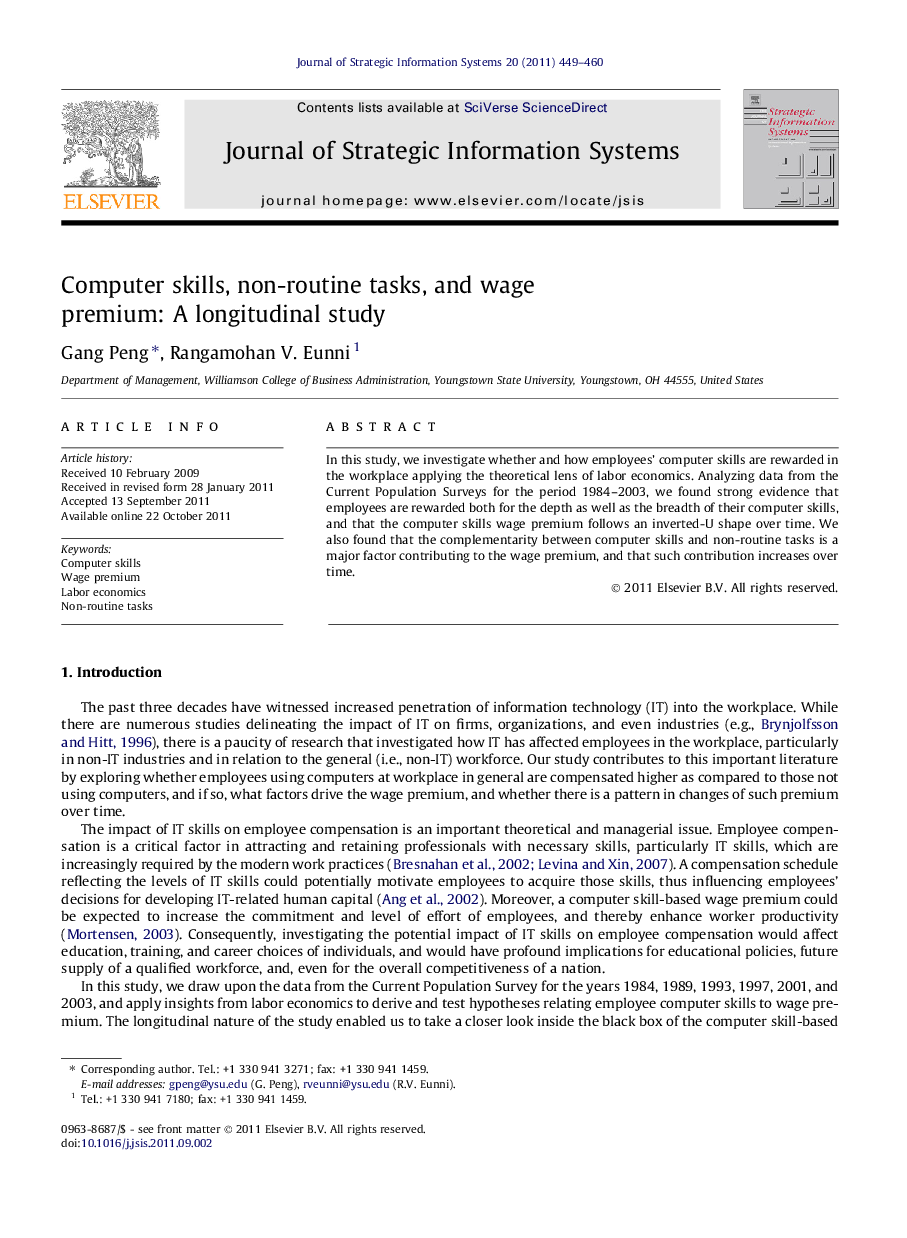| Article ID | Journal | Published Year | Pages | File Type |
|---|---|---|---|---|
| 557838 | The Journal of Strategic Information Systems | 2011 | 12 Pages |
In this study, we investigate whether and how employees’ computer skills are rewarded in the workplace applying the theoretical lens of labor economics. Analyzing data from the Current Population Surveys for the period 1984–2003, we found strong evidence that employees are rewarded both for the depth as well as the breadth of their computer skills, and that the computer skills wage premium follows an inverted-U shape over time. We also found that the complementarity between computer skills and non-routine tasks is a major factor contributing to the wage premium, and that such contribution increases over time.
► We investigate whether and how employees’ computer skills are rewarded in the workplace. ► Results show that employees are rewarded both for the depth as well as the breadth of their computer skills. ► We also found that complementarity between computer skills and non-routine tasks plays a major role for the wage premium. ► While the computer skills wage premium follows an inverted-U shape, the impact of complementarity increases over time.
